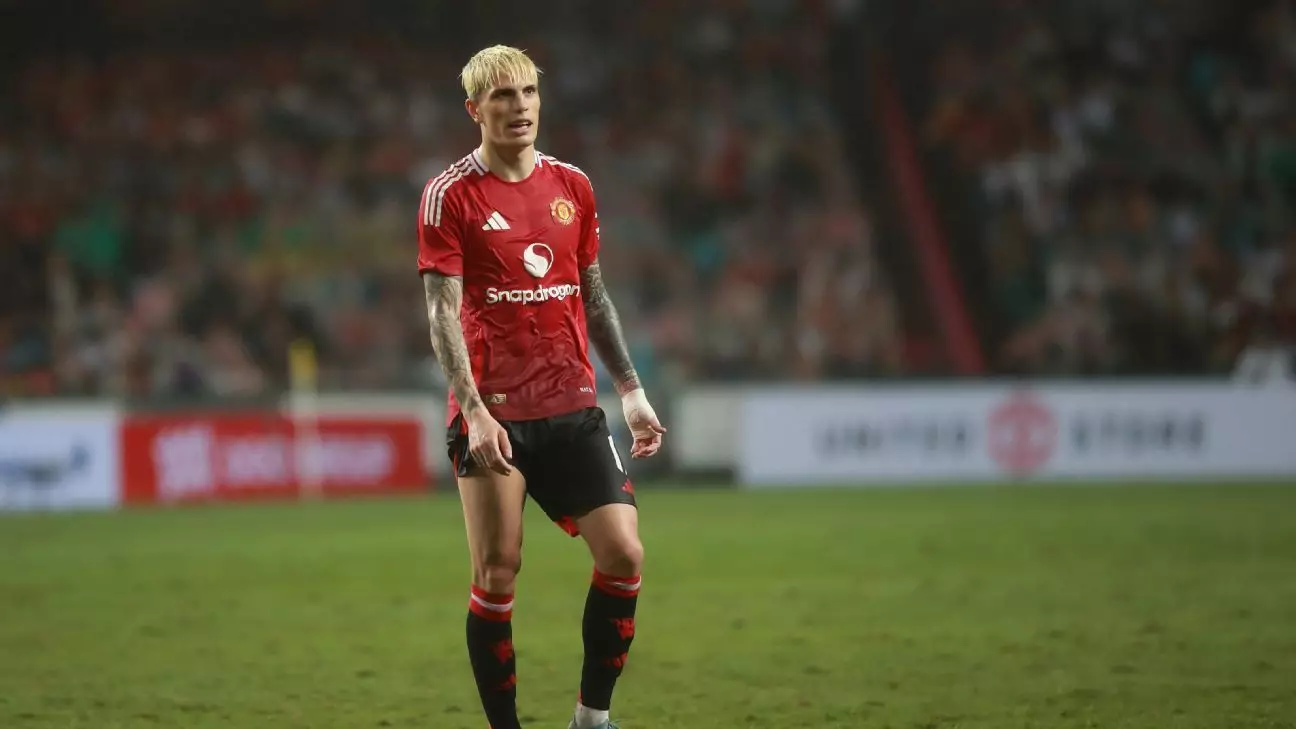In the world of elite soccer, hesitance and rigid planning can often hinder progress rather than facilitate it. Manchester United’s current approach, as articulated by coach Ruben Amorim, exemplifies a daring shift away from conventional transfer strategies and squad management. Rather than rigidly insisting on a fixed roster, the club appears to adopt an adaptable mentality, leaving room for player reintegration based on evolving circumstances. This unconventional stance emphasizes valuing player potential over immediate transfers, allowing the team to harness a broader pool of talent and psychological resilience.
Amorim’s stance showcases a recognition that football dynamics are fluid—players’ motivations, market conditions, and team needs shift rapidly. His openness to reintegration suggests an understanding that rigidly sticking to a pre-set squad can be counterproductive. Instead, giving players space to rejoin underlines a belief that talent and commitment can resurface given the right environment. It challenges the old paradigm of discarding players who don’t fit the immediate plan, instead advocating for patience and strategic flexibility—a strategy that might pay high dividends if executed correctly.
The Power of Player Agency and Motivations
Manchester United’s current situation reveals a nuanced understanding of player motivation and career ambitions. Several key players—Garnacho, Antony, Sancho, Malacia—are sidelined, ostensibly due to transfer negotiations or internal squad decisions. Yet Amorim’s comments suggest that he views these situations as opportunities rather than setbacks. Players often seek clarity, new challenges, or simply a different environment to flourish, and this management approach provides space for those pursuits.
This perspective aligns with a modern view of athlete psychology: offering players autonomy and respect, rather than rigidly forcing them to conform, increases their overall motivation. Amorim’s assurance that these players could be reintegrated if they remain club members indicates a belief that talent can’t be discarded casually. Instead, it’s about cultivating an environment where players feel valued and are given clear pathways to contribute—be it through competitive fighting or potential future roles. In a broader sense, this mindset can foster long-term loyalty and a resilient team culture.
Strategic Adaptability as a Competitive Edge
With transfer deadlines looming and market dynamics unpredictable, Manchester United’s approach reveals an astute awareness of strategic adaptability. The club’s willingness to wait—a gamble that could pay off if market conditions shift—is a testament to a sophisticated understanding that success often involves patience and timing. Amorim’s statements about the possibility of surprises hint at a flexible plan that can accommodate last-minute changes, turning potential uncertainties into opportunities.
In a football landscape that increasingly rewards agility, this approach could serve as a competitive advantage. Rather than rushing into signings that may not fit the team’s needs or culture, United’s management appears prepared to evaluate options carefully and remain open to internal solutions. This flexibility might also help the club avoid costly mistakes common in hurried transfer windows, ultimately fostering a squad built on quality, cohesion, and resilience rather than sheer acquisition.
The Challenge and Opportunity of Squad Composition
Amorim’s acceptance of a potentially unaltered squad at the season’s start underscores a core confidence in existing players like Rasmus Hojlund, Josh Zirkzee, and new signings Cunha and Mbeumo. While the football world fixates on star signings to guarantee success, this approach underscores an often-overlooked truth: cohesive teamwork and internal development can be equally powerful.
The focus shifts from acquiring superstars to fostering a competitive environment where currently available players are given the opportunities to grow and prove themselves. This mindset aligns with modern coaching philosophies that prioritize tactical harmony and psychological readiness over mere talent acquisition. If Manchester United leverages this internal strength, they could develop a more resilient and adaptable team capable of facing diverse challenges domestically and in European competitions.
In essence, Amorim’s strategy isn’t merely about squad assembly; it’s about cultivating a mindset of patience, internal growth, and strategic resilience that might redefine what it means to build a successful team in modern football. It positions Manchester United not just as followers of transfer market trends but as innovators capable of turning internal strength into a sustainable competitive edge.


Leave a Reply